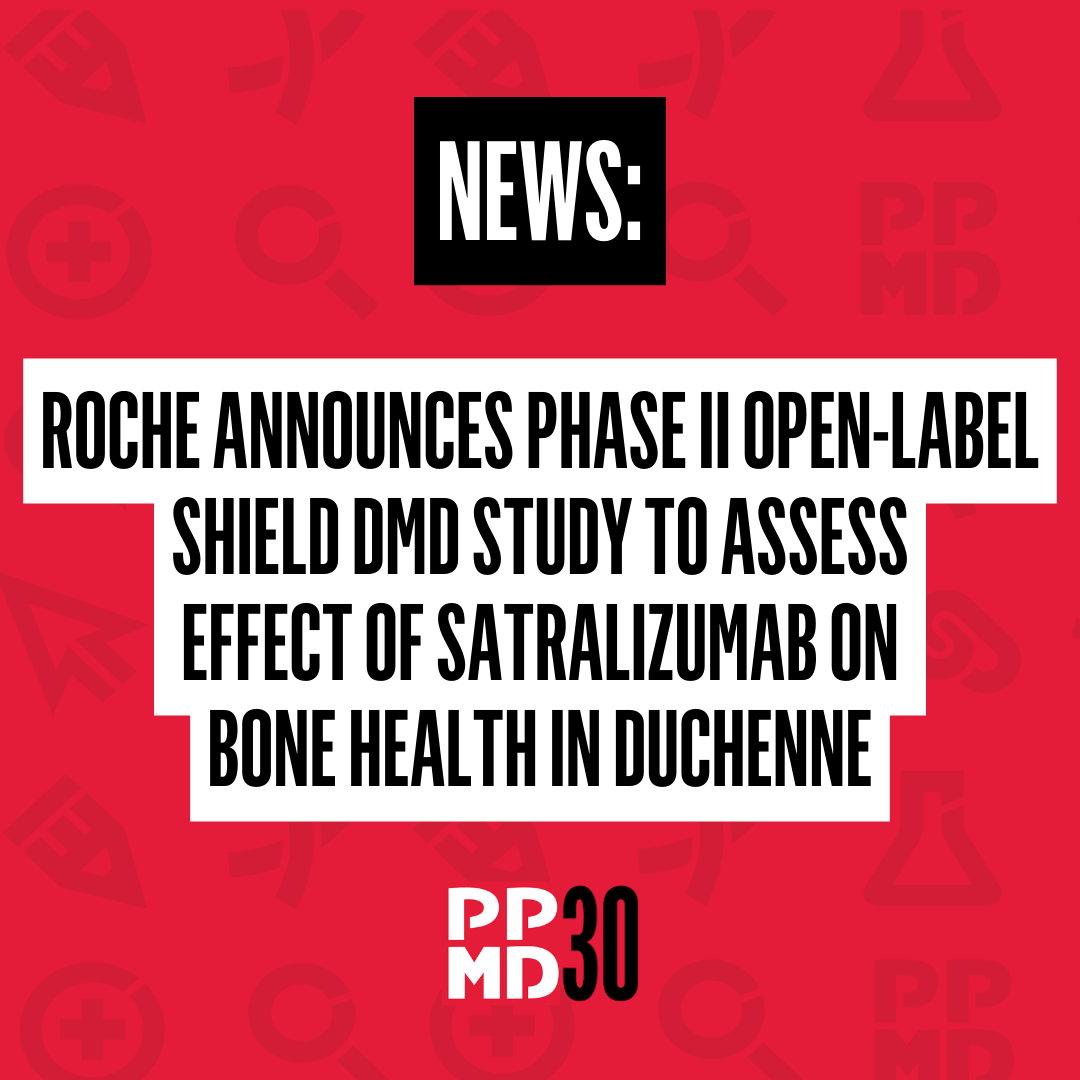
Today Roche announced plans for the SHIELD DMD study, a phase II open-label study to investigate the use of satralizumab in ambulatory and non-ambulatory individuals with Duchenne. Satralizumab is a monoclonal antibody that inhibits interleukin-6 and is an approved therapy for adults with neuromyelitis optica spectrum disorder.
According to Roche, with the understanding of the negative effects of inflammation on bone health, the company did preliminary testing to see if satralizumab might improve bone strength to reduce fractures. The analysis of this preliminary testing showed positive results, leading to the development of the SHIELD DMD study, which will investigate whether satralizumab can slow bone loss and muscle atrophy to help prevent fractures and improve bone and muscle strength.
Roche has indicated that the study will last two years and aims to enroll about 50 individuals aged 8 to 15, with approximately 16 sites planned in the US, Italy, Poland and Spain. The company expects to begin enrolling participants in late summer 2024.
Roche will be providing an overview of the SHIELD DMD study at PPMD’s 30th Annual Conference in Orlando, Florida, taking place June 27-29, 2024. Click here for more information on PPMD’s 30th Annual Conference and registration.
Read Roche’s community letter:
10 June 2024
Dear Duchenne patient community leaders,
In response to your request to be informed about our efforts in Duchenne we are pleased to introduce a new study that expands our research efforts in DMD. Beyond, and separate from, our gene therapy efforts, Roche is initiating a bone health study that we hope will add to future options for families living with DMD.
This study was developed in response to DMD community feedback about the major impact of fractures and osteoporosis as well as the need for better treatment or prevention options related to bone health. Understanding the negative effect of inflammation on bone health, Roche scientists did preliminary testing to see if satralizumab, a Roche anti-inflammatory medicine, might improve bone strength to reduce fractures. Importantly, our scientists used samples donated and preserved from a previous DMD clinical trial (SPITFIRE; NCT03039686) to run laboratory tests. The analysis showed positive results that led to the development of the SHIELD DMD study (NCT06450639), a phase II open-label study to investigate the use of satralizumab in ambulatory and non-ambulatory boys with Duchenne.
Satralizumab is a biologic therapy designed to block interleukin-6 (IL-6) signaling by binding to the IL-6 receptor. It is approved in over 90 countries as a monthly at-home injection for adults and adolescents with a rare condition called neuromyelitis optica spectrum disorder (NMOSD). Satralizumab is being investigated in various other conditions.
In DMD the IL-6 pathway promotes inflammation in the muscles and contributes to bone erosion, loss and fractures. The SHIELD DMD study will investigate whether satralizumab can slow bone loss and muscle atrophy to help muscle strength. The study will last 2 years and aims to enroll about 50 individuals aged 8 to 15. Approximately 16 sites are planned in the US, Italy, Poland and Spain. We expect to start enrolling participants in late summer 2024. Site locations will be posted on clinicaltrials.gov when they are open for enrollment.
Families in countries where there are study sites who are interested in participating should speak to their treating physician.
We would like to express our gratitude to the various community members and experts in bone health and DMD that helped shape this trial and the clinical trial participants past and present who are helping to advance research.
We look forward to providing you with updates in the near future, and we thank you for your continued partnership.
Sincerely,
Sandra Blum, on behalf of the Roche DMD team Global Patient Partnership Leader



 by: Parent Project Muscular Dystrophy
by: Parent Project Muscular Dystrophy

